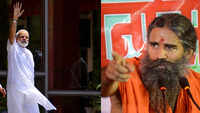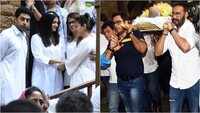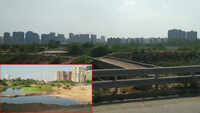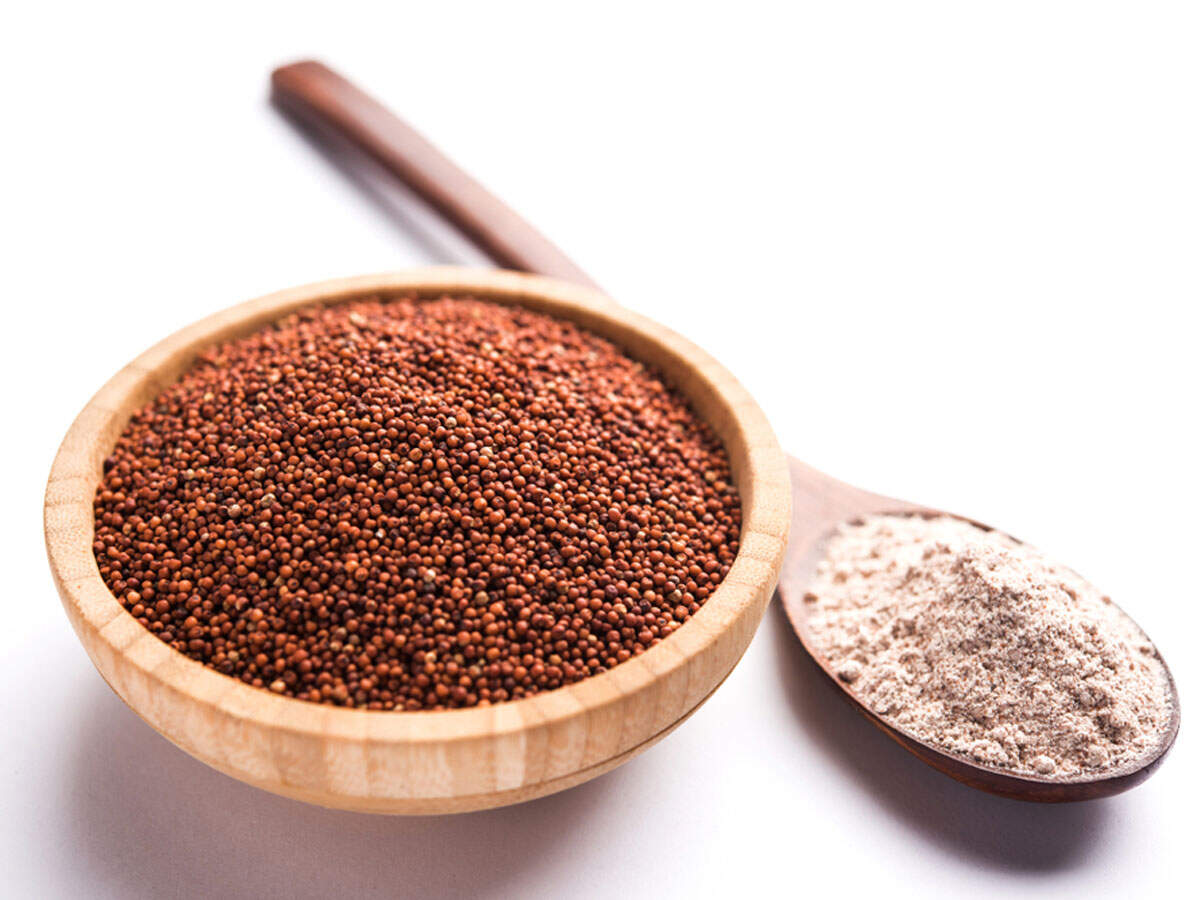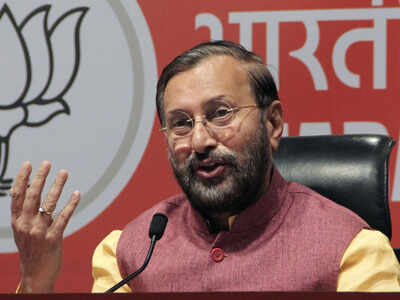
Guest Column- Prakash Javadekar
After the 2019 parliamentary elections, Prime Minister Narendra Modi clearly spelt out his vision through three speeches - at the cabinet meeting, the BJP headquarters and the NDA parliamentary party meeting. The PM said the 2019 verdict was a historic win. He said this election was contested by the people themselves. The verdict was a positive vote for the ruling BJP as it was not based on caste but based on the government's performance.
On the day results were declared, Modi underlined that BJP rose from two seats and got two Lok Sabha terms in succession with full majority. This reflects BJP's ever increasing popularity. In 2014, the PM had said this government was dedicated to the poorer sections of society and today, the same poorer sections have helped BJP get a historic mandate. In fact, BJP got support from all sections of society.
After being elected leader of the parliamentary party, Modi's speech reflected his long-term vision and commitment to the people and democracy. He touched upon four major aspects. First, he asserted that the government should live up to its motto of ' sabka saath sabka vikas', ie the government will be committed to the welfare of those who had voted for BJP and also to those who did not. He further widened this motto to include ' sabka vishwas'.
Elaborating on this, the PM said a fear psychosis was created among the minority community and they were treated as vote banks. In the next five years, the effort will be to win over their trust and hearts through our work and direct contact. He said the minority community was betrayed by Congress and other parties as they did not address the community's fundamental issues like education and empowerment.
Second, the Prime Minister pointed out that though BJP has got full majority, the government will be formed with the participation of NDA partners. He mooted 'NARA' - National Ambition and Regional Aspiration. This reflects the PM's strong commitment towards cooperative federalism.
Third, Modi gave another big mantra - 'S attabhav nahi, sewa bhav chahiye' (working without arrogance of power and in the spirit of service) and asked newly elected MPs to shed 'VIP culture'. He said the people had "accepted us due to our seva bhav (spirit of service)". After the 2014 elections, he had presented himself before people as ' Pradhan Sevak' and not 'Prime Minister'.
Fourth, the Prime Minister insisted on ' Janbhagidari' (people's participation). Since 2014, the Prime Minister has been focusing on people's participation and Swachh Bharat Abhiyan is a prominent example. Swachh Bharat did not remain a government programme but turned out to be a peoples' programme.
In the 2019 polls, the people made their intent clear. They voted BJP to power for its honesty and transparent governance. A daily wage labourer whom I met in Rajasthan said he would vote for Modi as he was hard working, selfless and worked 24x7 without taking even a single day off. A poor woman farmer said she would vote for Modi as he hailed from a poor family and he always cared for the poor.
A youngster belonging to a tribal community in a remote village in Rajasthan said, "Earlier, if any jawan was captured by Pakistani forces, his beheaded body was sent to India but Modi managed to bring back the captured IAF pilot within 24 hours."
I believe that the Prime Minister, through his three speeches, has clearly outlined his long-term vision. Those who talk of secularism, liberal intellectualism and so-called progressive thinking will realise that Modi's vision is much more inclusive, secular and in line with the 21st century outlook.
(The writer is Union HRD minister)
After the 2019 parliamentary elections, Prime Minister Narendra Modi clearly spelt out his vision through three speeches - at the cabinet meeting, the BJP headquarters and the NDA parliamentary party meeting. The PM said the 2019 verdict was a historic win. He said this election was contested by the people themselves. The verdict was a positive vote for the ruling BJP as it was not based on caste but based on the government's performance.
On the day results were declared, Modi underlined that BJP rose from two seats and got two Lok Sabha terms in succession with full majority. This reflects BJP's ever increasing popularity. In 2014, the PM had said this government was dedicated to the poorer sections of society and today, the same poorer sections have helped BJP get a historic mandate. In fact, BJP got support from all sections of society.
After being elected leader of the parliamentary party, Modi's speech reflected his long-term vision and commitment to the people and democracy. He touched upon four major aspects. First, he asserted that the government should live up to its motto of ' sabka saath sabka vikas', ie the government will be committed to the welfare of those who had voted for BJP and also to those who did not. He further widened this motto to include ' sabka vishwas'.
Elaborating on this, the PM said a fear psychosis was created among the minority community and they were treated as vote banks. In the next five years, the effort will be to win over their trust and hearts through our work and direct contact. He said the minority community was betrayed by Congress and other parties as they did not address the community's fundamental issues like education and empowerment.
Second, the Prime Minister pointed out that though BJP has got full majority, the government will be formed with the participation of NDA partners. He mooted 'NARA' - National Ambition and Regional Aspiration. This reflects the PM's strong commitment towards cooperative federalism.
Third, Modi gave another big mantra - 'S attabhav nahi, sewa bhav chahiye' (working without arrogance of power and in the spirit of service) and asked newly elected MPs to shed 'VIP culture'. He said the people had "accepted us due to our seva bhav (spirit of service)". After the 2014 elections, he had presented himself before people as ' Pradhan Sevak' and not 'Prime Minister'.
Fourth, the Prime Minister insisted on ' Janbhagidari' (people's participation). Since 2014, the Prime Minister has been focusing on people's participation and Swachh Bharat Abhiyan is a prominent example. Swachh Bharat did not remain a government programme but turned out to be a peoples' programme.
In the 2019 polls, the people made their intent clear. They voted BJP to power for its honesty and transparent governance. A daily wage labourer whom I met in Rajasthan said he would vote for Modi as he was hard working, selfless and worked 24x7 without taking even a single day off. A poor woman farmer said she would vote for Modi as he hailed from a poor family and he always cared for the poor.
A youngster belonging to a tribal community in a remote village in Rajasthan said, "Earlier, if any jawan was captured by Pakistani forces, his beheaded body was sent to India but Modi managed to bring back the captured IAF pilot within 24 hours."
I believe that the Prime Minister, through his three speeches, has clearly outlined his long-term vision. Those who talk of secularism, liberal intellectualism and so-called progressive thinking will realise that Modi's vision is much more inclusive, secular and in line with the 21st century outlook.
(The writer is Union HRD minister)
Download The Times of India News App for Latest India News.
more from times of india news
Elections 2019
Trending Topics
LATEST VIDEOS
More from TOI
Navbharat Times
Featured Today in Travel
Quick Links
Rajasthan election 2019Andhra Lok Sabha electionGujarat Election 2019Karnataka Election 2019MP Lok Sabha electionMaharashtra election 2019West Bengal Lok SabhaTamil Nadu election 2019UP Election 2019Bihar election 2019UP Election DateAndhra Election DateBihar Election DateAndhra Assembly ElectionLok SabhaMP Election DateMaharashtra Election DateShiv SenaYSRCPTDPWB Election DateJDUCongressBJP newsGujarat Election DateSC ST ActUIDAIIndian ArmyISRO newsSupreme CourtRajasthan Election DateTelangana Election DateTamilrockers 2018Uttarakhand newsSikkim newsOrrisa newsKarnataka Election DateNagaland newsSatta KingManipur newsMeghalaya news
Get the app
